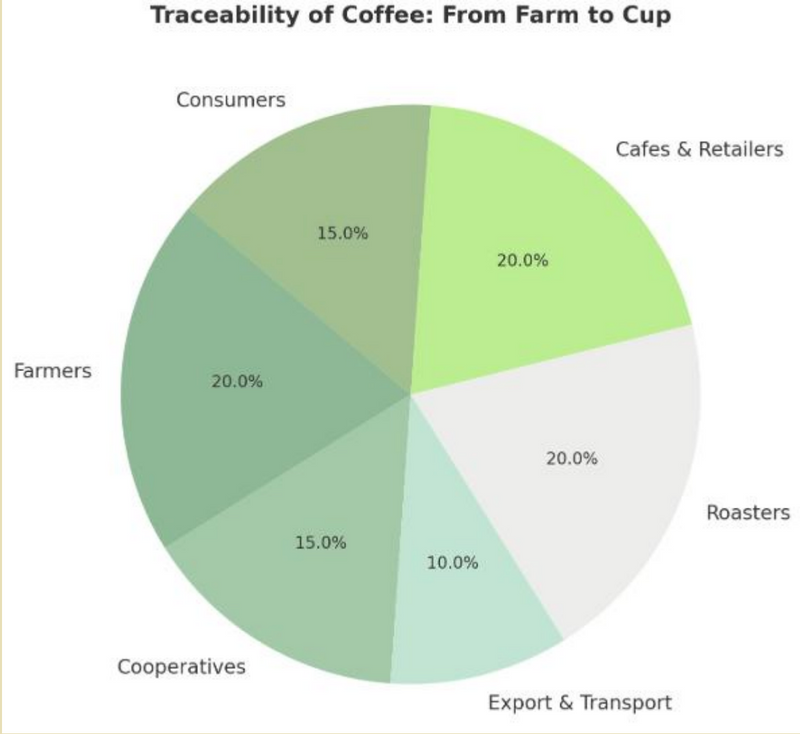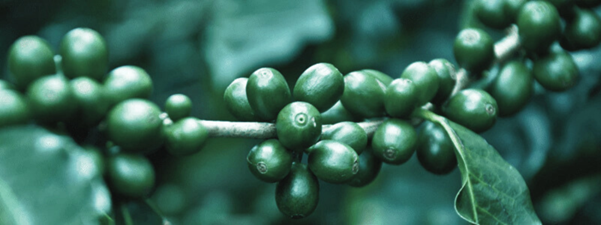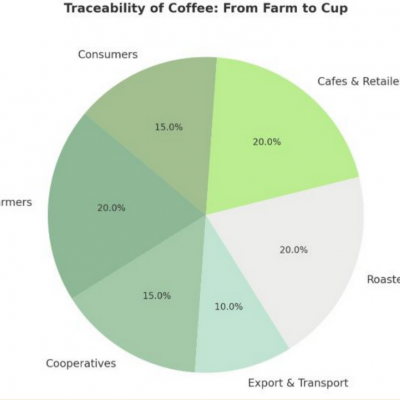Brewing sustainablity, empowering farmers
Kahawa Root’s connects Kenyan coffee farmers with UK cafes and roasters, ensuring fair trade, sustainability, and traceability.
About Us
What Does Kahawa Root’s Mean?
Kahawa means coffee in Swahili, representing Kenya’s rich
coffee-growing heritage. Root’s symbolizes the farmers at the heart of our business and the traceability of every bean we source.
Together, Kahawa Root’s represents our mission to honor the
roots of coffee production while creating a transparent, ethical
supply chain.

Our Coffee
From Kenya’s Best Farms to Your Cup
Geographic Location
- Mt. Elgon: A volcanic mountain on the Kenya-Uganda border.
- Region: Bungoma and the surrounding regions in western Kenya.
- Altitude: Ranges from 1,400 to 2,200 meters above sea level (ideal for high- quality Arabica coffee).
- Soil: Volcanic soil rich in nutrients, providing an excellent foundation for coffee cultivation.
Coffee Varieties
- Arabica Coffee: Primarily grown in this region, with varieties such as:
- SL28 and SL34: Known for their resistance to drought and their ability to produce high-quality coffee.
- Batian: A newer variety that combines quality with resistance to diseases like coffee leaf rust and coffee berry disease.
- Ruiru 11: Resistant to diseases and adapted to local climatic conditions.
Growing Conditions
- Climate:-Cool temperatures (average 18–22°C) due to high altitudes.
- Distinct wet and dry seasons, which are ideal for coffee flowering and cherry development.
- Rainfall: Annual rainfall of 1,200– 2,000 mm, evenly distributed.
- Shade-Grown Coffee: Many farmers grow coffee under the shade of indigenous and exotic trees, which contributes to the beans' flavor complexity and promotes biodiversity.
Coffee Characteristics
- Flavor Profile:Bright acidity with citrus and berry notes.
- Medium to full body with a balanced and smooth flavor.
- Sweet and fruity aroma with floral undertones.
- Processing: Most coffee is processed using the washed (wet) method, which enhances clarity and brightness in the cup.
- Grading:Graded by size and quality, with AA being the largest and most premium grade, followed by AB, PB, and others.
Smallholder Farming Practices
- Farm Size: Most coffee is grown by smallholder farmers on plots averaging 0.5–2 hectares.
- Cooperative Societies:Farmers are often organized into cooperative societies, which manage coffee processing, grading, and sales.
- Examples: Bukusu Cooperative Society or other smaller groups in the region.
- Sustainable Practices: Increasing adoption of sustainable farming practices, including organic farming, agroforestry, and water conservation.
Harvesting and Seasonality
- Harvesting Period: Main harvest: October to December.
- Secondary harvest: March to May. Hand-Picked: Coffee cherries are hand- picked to ensure only ripe cherries are harvested, contributing to higher quality.
About the Partners
Meet the Founders
An experienced sustainability strategist passionate about empowering communities and creating ethical business models.
A logistics and operations expert with a deep commitment to building sustainable supply chains.


Our Commitment to Sustainability

Sustainable Farming Practices

Eco-friendly Packaging

Carbon Footprint Reduction
Roots for Tomorrow
Roots for Tomorrow

Traceability
Transparency is the cornerstone of our operations. Every bag of
coffee can be traced back to the farmer who grew it, providing our customers with a direct connection to the source of their
coffee.
This traceability ensures that farmers receive fair compensation
for their hard work and allows customers to support ethical
practices.
Transparency is the cornerstone of our operations. Every bag of
coffee can be traced back to the farmer who grew it, providing our customers with a direct connection to the source of their
coffee. This traceability ensures that farmers receive fair compensation
for their hard work and allows customers to support ethical
practices.
Contact Us
Our Office
Kahawa Roots UK LTD The Coach House 1A Boswell Road Sutton Trinity The Ryal Town of Sutton Coldfield Birmingham B74-2NB

Leave A Message
FAQs
This service provides users with [brief description of the service], making it easy and convenient to [main benefit].
You can sign up by visiting our website and clicking on the Sign Up button. Follow the simple steps to create your account.
Our pricing plans include [mention free/paid options], ensuring flexibility based on your needs.
Est architecto molestias qui commodi omnis et nesciunt sint eum consequuntur consequatur est omnis praesentium non nemo accusantium. Eum enim consequuntur ut aliquid modi sit velit enim. Ut odit perferendis est molestiae ipsam ea repellat aliquid 33 ducimus repellendus qui.


